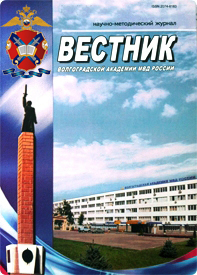In connection with the rendering of the cassation ruling No. 45-012-77 by the Judicial Chamber of Criminal Cases of the Supreme Court of the Russian Federation on January 9, 2013 the procedure for carrying out such an operational search activity as a search of premises, buildings, sectors of the terrain, and vehicles is being actively discussed, specifically the possibility of conducting an overt search of a dwelling without the owners' consent and the admissibility of conducting a search in such a form that goes beyond visual inspection. It is necessary to consider existing approaches to the outlined issues, to analyze the legislation and arguments of the opponents of the possibility of conducting an overt search of a dwelling without the owner's consent in a form that goes beyond the scope of visual inspection, to offer arguments for the possibility of conducting a search beyond the scope of a visual inspection. To solve the designated problems the authors used a systematic approach to set apart the problems and formulate research goals. The methods of particular theoretical research such as comparison-based legal method, hermeneutical method in different variations namely the analysis of grammatical and logical structures of legal documents; their systematic, historical, and teleological interpretation were widely used. In the course of the research, the authors come to the conclusion that an overt search of a dwelling can be conducted without the owners' consent if the court's permission is granted; the search involves active search activity, including opening of locked premises and storage facilities regardless of the form it is conducted in; further development of the operational search activity should include the improvement of the provisions of legislation containing measures to ensure the conduct of the search and the rights of people who are being the subjects of the operational search activities.
detective activity, operational search operation, overt search of a dwelling, coercion in the detective activity, coercive search
1. Chechetin A. E. Obespechenie prav lichnosti pri provedenii operativno-rozysknyh meropriyatiy: monogr. SPb., 2016. 232 s.
2. Polyakov M. P., Terehin V. V. Nekotorye aspekty narusheniya zakonnosti pri realizacii glasnogo operativnogo obsledovaniya (kak proyavlenie metodologicheskoy problemy differenciacii ORD na glasnuyu i neglasnuyu) // Yuridicheskaya nauka i praktika: Vestnik Nizhegorodskoy akademii MVD Rossii. 2012. № 1. S. 240-244.
3. Zenkin A. N. Podmena ugolovno-proces-sual'nyh deystviy operativno-rozysknymi meropriyatiyami // Zakonnost'. 2017. № 1. S. 61-63.
4. Lugovik V. F. Pravovye surrogaty i prinuzhdenie v operativno-rozysknoy deyatel'nosti // Nauchnyy vestnik Omskoy akademii MVD Rossii. 2017. № 2 (65). S. 27-28.
5. Ryzhakov A. P. Obysk i vyemka: osnovaniya i poryadok proizvodstva. M., 2015. 224 s.
6. Nauchno-prakticheskiy kommentariy k Ugolovno-processual'nomu kodeksu Rossiyskoy Federacii (postateynyy) / ruk. avt. kol. V. A. Davydov. M., 2014. 1056 s.
7. Rossinskiy S. B. Kommentariy k st. 182 UPK RF // Ugolovno-processual'nyy kodeks Rossiyskoy Federacii: postat. nauch.-prakt. komment. / otv. red. L. A. Voskobitova. M., 2015. Vyp. 3-4.
8. Golovnenkov P., Spica N. Ugolovno-processual'nyy kodeks Federativnoy Respubliki Germaniya - Strafprozessordnung (StPO): nauch.-prakt. komment. i perevod teksta zakona. Potsdam, 2012. 404 s. URL: https://publishup.uni-potsdam.de (data obrascheniya: 07.12.2017).









